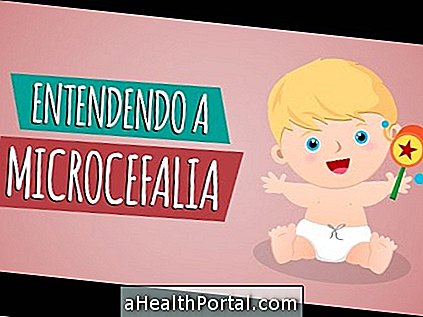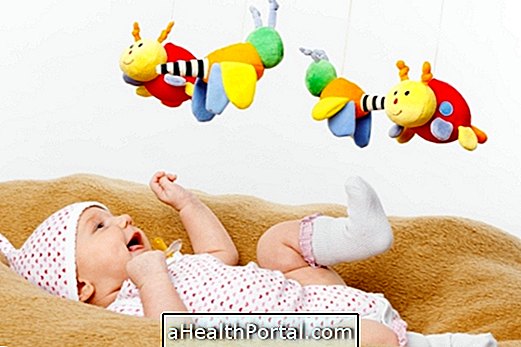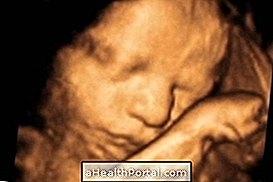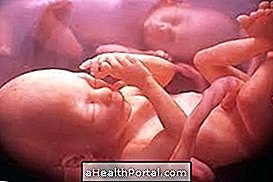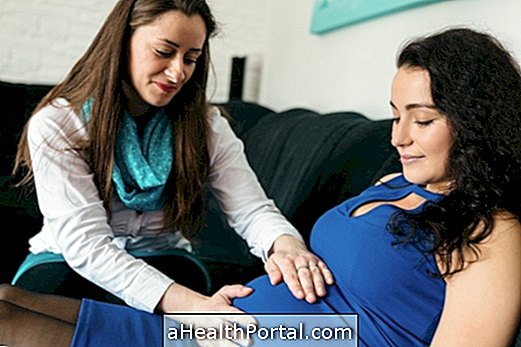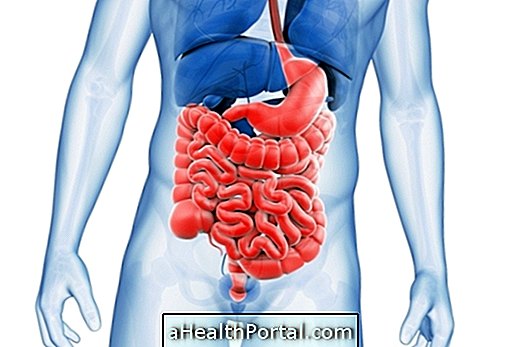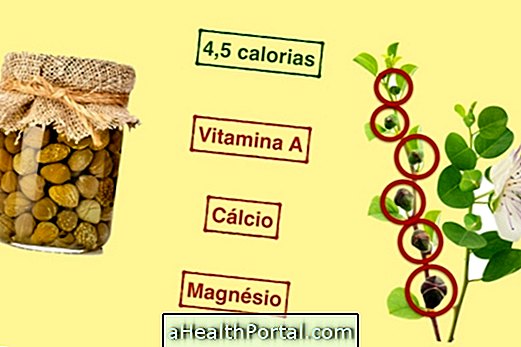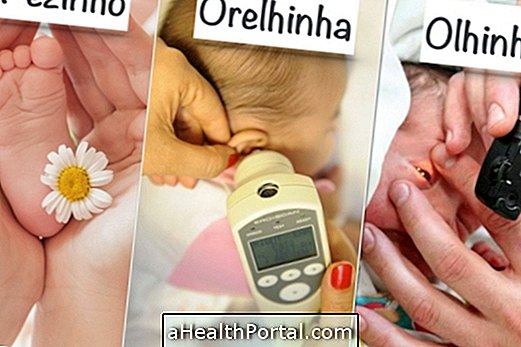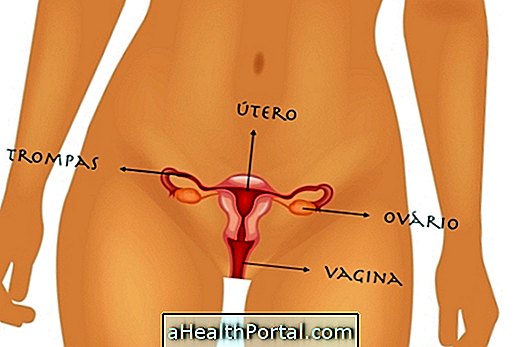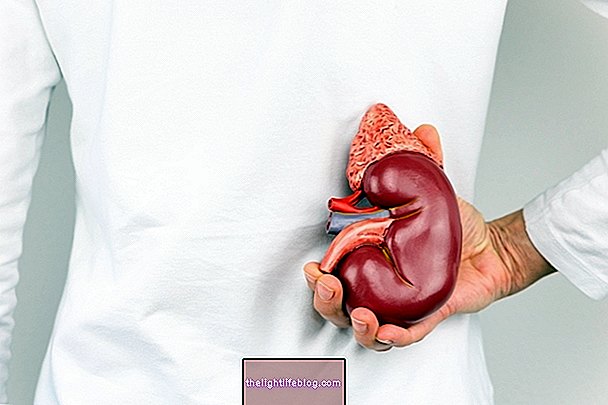At around 19 weeks, which is 5 months pregnant, the woman is about halfway through the pregnancy and may already begin to feel the baby move inside her belly.
The baby already has a more defined physiognomy, the legs are now longer than the arms, making the body more proportional. In addition, it also reacts to sound, movement, touch and light, and can move even if the mother does not perceive it.

Development of the fetus
At 19 weeks, the baby's face is in continuous development and a small layer of soft hair starts to cover it. The eyebrows and eyelashes begin to grow and the eyelids are already formed, but the baby's eyes are not yet open, although he is already able to perceive the intense light outside the uterus. Hair is beginning to grow, but color and texture may change after birth.
The baby is already beginning to swallow the amniotic fluid, the kidneys continue to produce urine, and the taste buds begin to form on the tongue. Nerve cells that already exist increase in size and form more complex connections, but their production begins to decrease.
As the tiny bones inside the ears harden, the baby begins to hear sounds like the heartbeat, the voice and the sounds of the mother's guts. The baby's lungs are growing and the chest already performs the breathing movements. You can close your hands if they touch and you already have small nails.
If it is a girl, it already has the reproductive system established with genital organ, uterus, Fallopian tubes and approximately 6 million primitive ovules in the ovaries. When the baby is born, that number will be reduced to 1 million and will no longer produce eggs throughout life.
For the brain is a very important stage because it will develop the senses, designating specific areas for taste, smell, touch, hearing and vision.
Pictures of the fetus at 19 weeks gestation


The size of the baby at 19 weeks is approximately 13 inches and weighs about 140 grams.
Changes in mother
On a physical level, changes in the 19-week-old woman are more notable as the tummy has begun to grow more from now on. Normally, the nipples become darker and it is possible for the mother to have a dark vertical line in the center of the belly. The heart will work twice as long to meet the additional demands of the body.
One may already begin to feel the baby stirring, especially if it is not the first pregnancy, but for some women it may take a little longer. You can feel the lower part of the belly a little more painful, because at this stage the ligaments of the uterus stretch as it grows.
Although it is heavier, it is imperative that the pregnant woman perform some physical activity to remain active. If the pregnant woman feels tired while practicing her routine exercise, the ideal is to always breathe deeply and gradually slow down, never stopping once and for all. Here are the best exercises to practice during pregnancy.
Your pregnancy by quarter
To make your life easier and you do not waste time looking, we separate all the information you need for each trimester of gestation. What quarter are you in?
- 1st Quarter (1st to 13th week)
- 2nd Quarter (14th to 27th week)
- 3rd Quarter (from the 28th to the 41st week)

